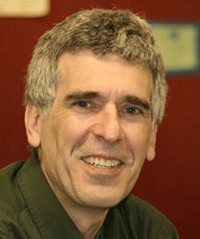This article is adapted from the new edition of Norman Solomon's book "Made Love, Got War," just published as a free e-book.
The final big legislative achievement of 2021 was a bill authorizing $768 billion in military spending for the next fiscal year. President Biden signed it two days after the Christmas holiday glorifying the Prince of Peace.
Dollar figures can look abstract on a screen, but they indicate the extent of the mania. Biden had asked for "only" $12 billion more than President Trump's bloated military budget of the previous year -- but that wasn't enough for the bipartisan hawkery in the House and Senate, which provided a boost of $37 billion instead.
Overall, military spending accounts for about half of the federal government's total discretionary spending -- while programs for helping instead of killing are on short rations at many local, state, and national government agencies. It's a nonstop trend of reinforcing the warfare state in sync with warped neoliberal priorities. While outsized profits keep benefiting the upper class and enriching the already obscenely rich, the cascading effects of extreme income inequality are drowning the hopes of the many.
Corporate power constrains just about everything, whether healthcare or education or housing or jobs or measures for responding to the climate emergency. What prevails is the political structure of the economy.
Class war in the United States has established what amounts to oligarchy. A zero-sum economic system, aka corporate capitalism, is constantly exercising its power to reward and deprive. The dominant forces of class warfare -- disproportionately afflicting people of color while also steadily harming many millions of whites -- continue to undermine basic human rights including equal justice and economic security. In the real world, financial power is political power. A system that runs on money is adept at running over people without it.
The words "I can't breathe," repeated nearly a dozen times by Eric Garner in a deadly police chokehold, resonated for countless people whose names we'll never know. The intersections of racial injustice and predatory capitalism are especially virulent zones, where many lives gradually or suddenly lose what is essential for life. Discussions of terms like "racism" and "poverty" too easily become facile, abstracted from human consequences, while unknown lives suffocate at the hands of routine injustice, systematic cruelties, the way things predictably are.
(Note: You can view every article as one long page if you sign up as an Advocate Member, or higher).






